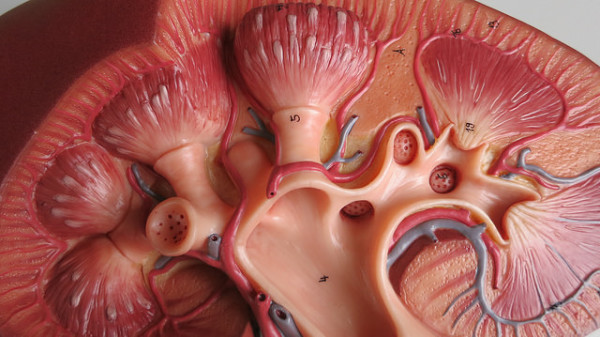The kidneys are perhaps the most complex and functionally important organs in the body. However, in chronic kidney disease, the kidneys begin to lose these functions, leading to devastating effects on the body.
The kidneys are made up of units called nephrons. Each nephron has a complex architecture meant to help the kidneys achieve their main functions of filtration, reabsorption, secretion, and excretion. The kidneys filter blood, maintain fluid levels, and excrete wastes through urine. Over time, the buildup of fluid and wastes in the body becomes potentially fatal — this is known as end-stage kidney disease. Patients suffering from end-stage kidney disease depend on dialysis for blood filtering and fluid maintenance.
Image Source: Science Photo Library
Many factors affect an individual’s likelihood of suffering from chronic kidney disease. Some causes of chronic kidney disease include diabetes, hypertension, genetic abnormalities, and autoimmune disorders. Generally, these conditions cause stress to the kidneys, which can eventually hamper their functionality and lead to chronic kidney disease. Symptoms of CKD include fatigue, poor appetite, lack of sleep, swelling in the legs and feet, and frequent urination.
Treatments for CKD typically work to keep blood pressure within the normal range; treatments also help patients readjust their lifestyles to protect their kidneys from further stress or damage in the future. For example, individuals must make severe changes to their diet. In particular, patients should eat food low in fat, cholesterol, and sodium. Some individuals should further decrease their fluid intake as well as their protein intake. Unfortunately, there is no cure for CKD. All treatments attempt to stop the disease from progressing further to end-stage kidney disease and kidney failure, and once at the end-stage, dialysis or a kidney transplant is the only option.
Chronic kidney disease affects an individual’s physical and mental health. Preventing or delaying CKD requires the early diagnosis and treatment of conditions like diabetes and high blood pressure. In addition, quitting smoking can also have protective effects.
If a friend or loved one is suffering from chronic kidney disease, help them structure and vary their diet and also give them mental support. In addition, seek out ways to support research in the field, like work involving artificial kidneys, that can give patients options beyond dialysis in the future.
Feature Image Source: Kidneys, renal pyramids and pelvis by John Campbell










